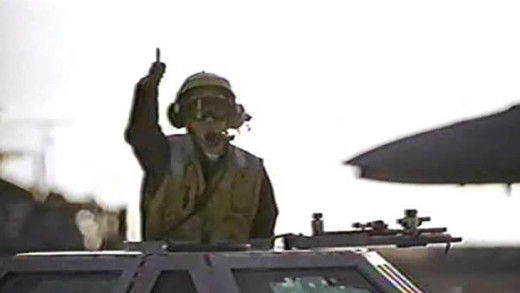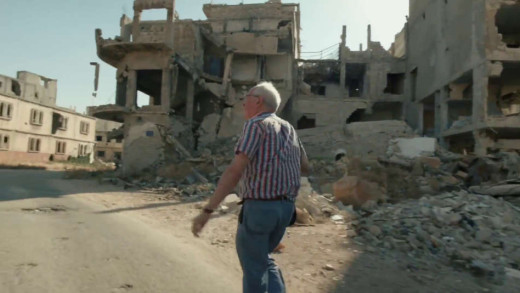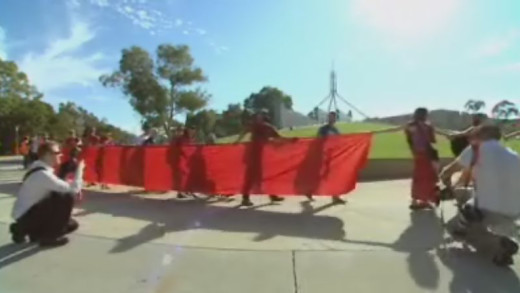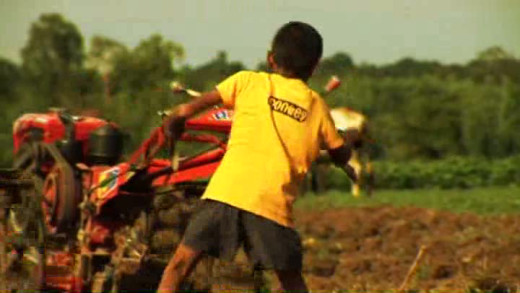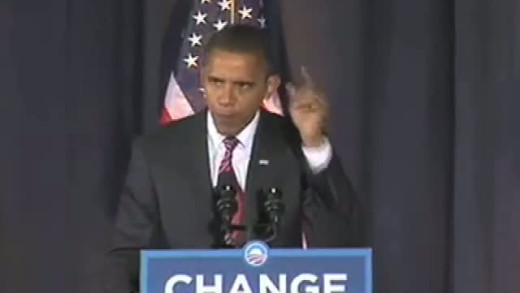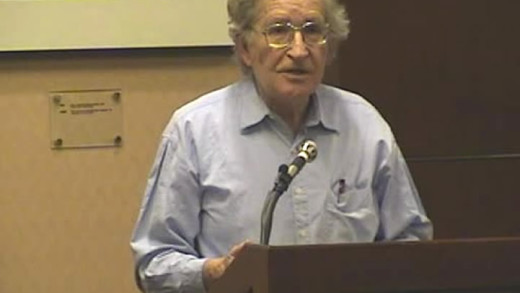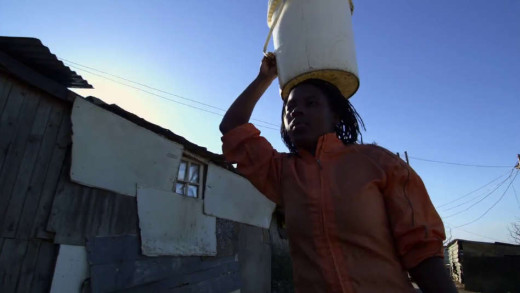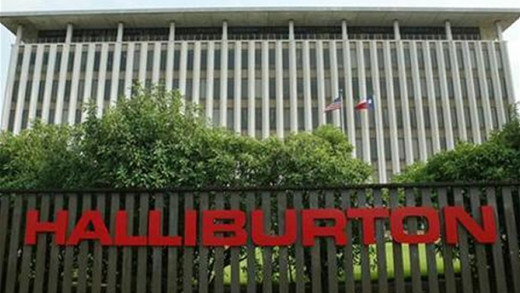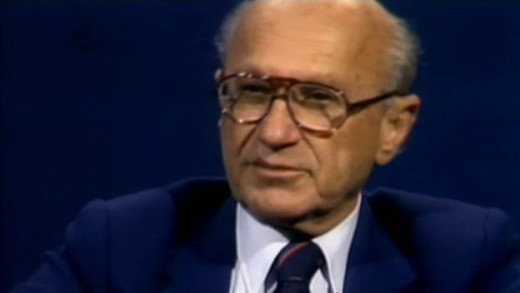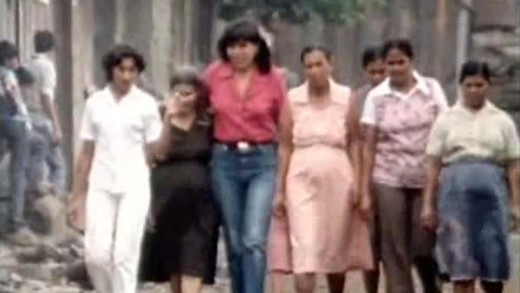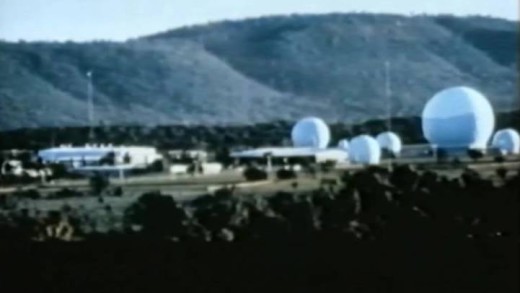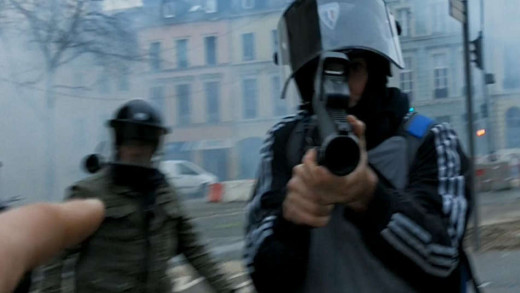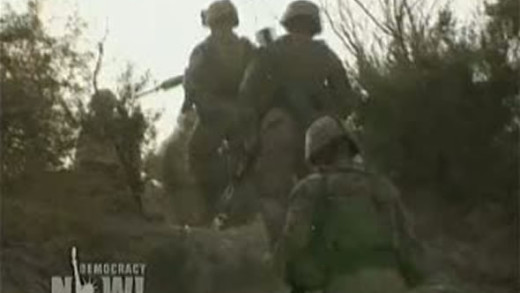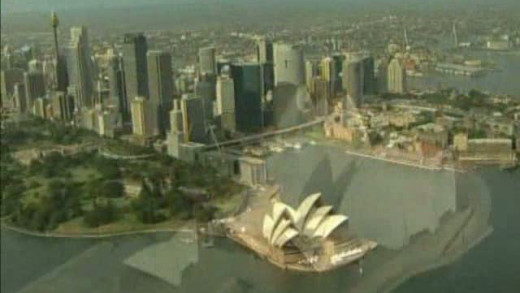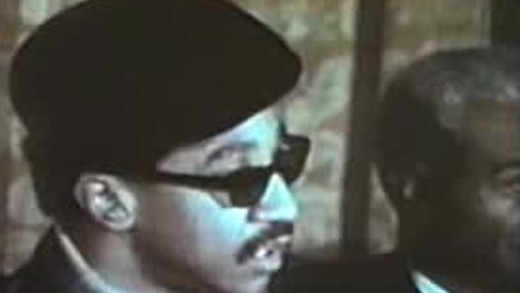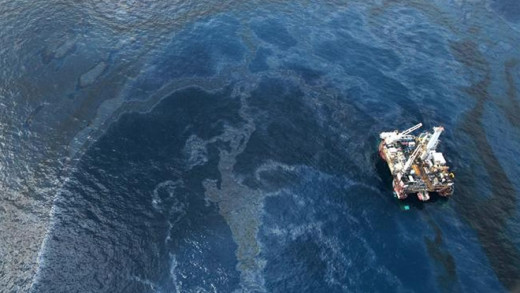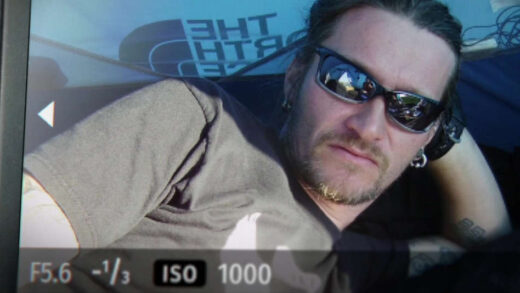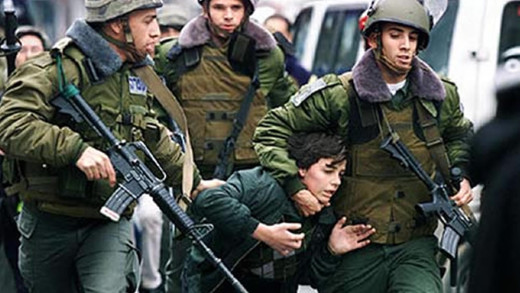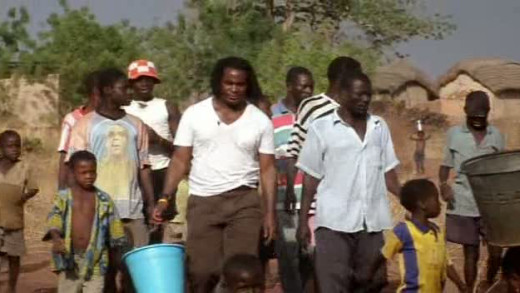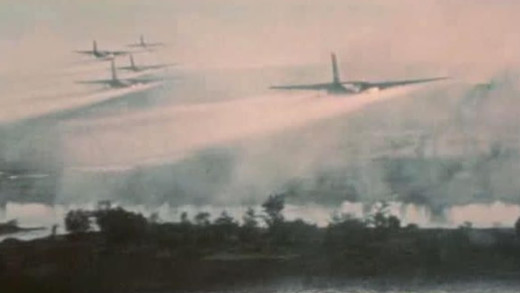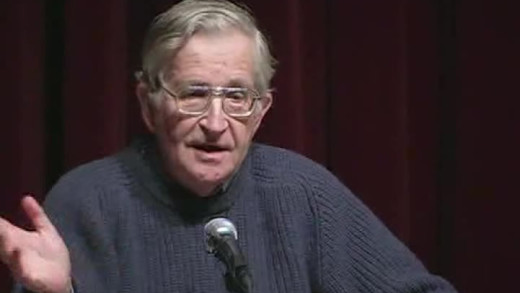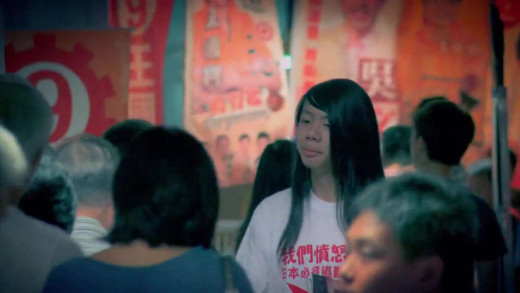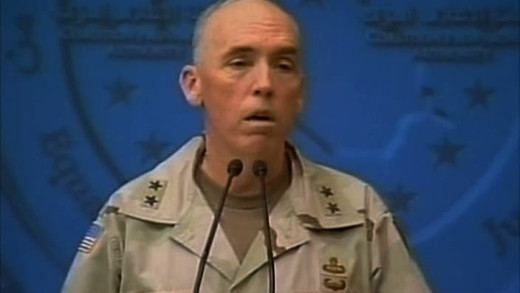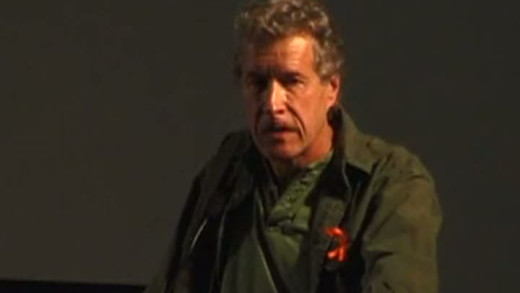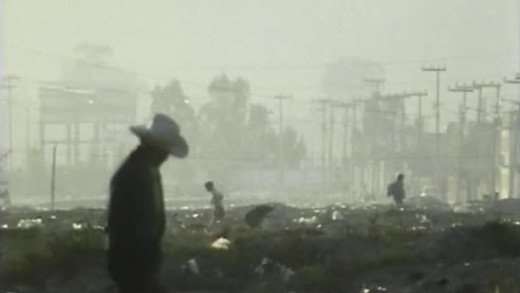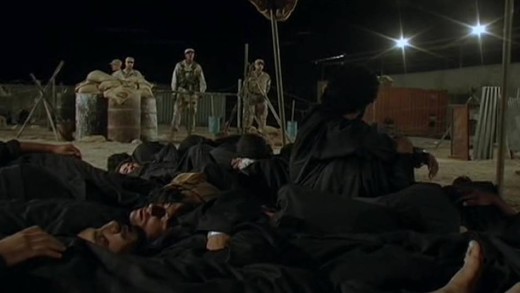Militainment Inc. examines how news coverage of war in the United States has come to resemble Hollywood film, video games, and reality television in its portrayal of war as entertainment. Using a range of media examples--from news anchors' idolatry of military machinery to the impact of government propaganda on war reporting--Militainment Inc. asks: How has war taken its place as a spectacle of entertainment? And how does presenting war as entertainment affect the ability of the population to evaluate the real human costs of this culture's military-industrial-complex?
In Requiem for the American Dream, renowned intellectual figure Noam Chomsky deliberates on the defining characteristics of our time—the colossal concentration of wealth and power in the hands of the few and fewer, with the rise of a rapacious individualism and complete collapse of class consciousness. Chomsky does this by discussing some of the key principles that have brought this culture to the pinnacle of historically unprecedented inequality by tracing a half century of policies designed to favour the most wealthy at the expense of the majority, while also looking back on his own life of activism and political participation. The film serves to provide insights into how we got here, and culminates as a reminder that these problems are not inevitable. Once we remember those who came before and those who will come after, we see that we can, and should, fight back.
This Is Not a Movie is a profile of the career of Robert Fisk, an influential British war correspondent whose groundbreaking and often game-changing journalism during some of the most violent and divisive conflicts in the world, has been imperative to reporting the reality of war. The film captures Fisk in action, notebook in hand, as he travels into landscapes devastated by war, seeking out the facts on the ground, and firing reports back home to reach an audience of millions. Fisk talks passionately about his process of translating raw experience into incisive and passionate dispatches, while showing his determination to see things first-hand and the tenacity to say what others won't. In his pursuits of the truth, Fisk has attracted criticism, but in spite of the system stacked against him, and the huge personal risks and dangers, he continues to cover stories as they unfold, talking directly to the people involved. This Is Not a Movie is a homage to Fisk's legacy to speak truth to power, in an era of fake news, and where journalists are dubbed "the enemies of the people."
On the eve of the Australian government's release of its controversial climate change legislation, reporter Liz Jackson investigates the relentless lobbying campaign conducted over the past 12 months by both environmentalists and industry. Who has won out? Will Australia have an emissions trading scheme, as the government has promised, by 2010?
Filmed in Thailand and the Philippines in July 2007, Squeezed tells the story of how free trade agreements and globalisation are changing the lives of millions of people living in the Asia-Pacific region with APEC. Featuring interviews with farmers, workers and slum-dwellers, the film travels across the landscapes of Asia, from the lush rice paddies of Thailand to squatter settlements perched on a rubbish dump in urban Manila. Documenting these contrasts and contradictions, Squeezed accounts the impact of globalisation...
Lifting The Veil explores the historical role of political parties in the United States as the graveyard of social movements, the massive influence of corporate financing in elections, the absurd disparities of wealth, the continuity and escalation of neoconservative policies with the Obama administration, the insufficiency of mere voting as a path to reform, and differing conceptions of democracy itself. Lifting The Veil exposes the vast hypocrisy of the United States government, with a sense of urgency to bring about real systemic social and political change...
The hypocrisy of the United States government is scrutinized in Distorted Morality—a scathing thesis against war and the invasion of Iraq, presented by renowned scholar Noam Chomsky in 2002. Chomsky sets fair and logical parameters to test his ideas, before outlining the reasons why the United States post-9/11 "war on terror" is a logical absurdity. This, according to Chomsky's carefully supported analysis, is because the US government has been, and continues to be, a major supporter of state-supported terrorism; favoring retaliatory or preemptive aggression over mediation in the world court, and avoiding accountability by excluding itself from the globally accepted definition of terrorism. Explored also are numerous historical examples to support.
When the South African government promises to "eradicate the slums" and begins to evict shack dwellers far outside the city, three friends who live in Durban's vast shantytowns refuse to be moved. Dear Mandela follows their journey from the shacks to the highest court in the land as they invoke Nelson Mandela's example and become leaders in a growing social movement. The film offers a valuable perspective on the role that young people can play in political change, and is a modern portrait of South Africa. Dear Mandela is the centerpiece of a global community engagement project that educates slum residents about their housing rights and inspires young people to become leaders.
The untold history of The Project for the New American Century is no more. This film exposes how every major war in US history was based on a complete fraud with video of insiders themselves admitting it. This documentary shows how the first film theatres in the US were used over a hundred years ago to broadcast propaganda to rile the American people into the Spanish-American War; the white papers of the oil company Unocal which called for the creation of a pipeline through Afghanistan and how their exact needs were fulfilled through the US invasion of Afghanistan; how Halliburton under their "cost plus" exclusive contract with the US Government went on a mad dash spending spree akin to something out of the movie Brewster's Millions...
By comparing the confluence of ideas about modifying behaviour using shock therapy and other forms of sensory deprivation (which culminated in the top-secret CIA project called MKULTRA during the 1950s) alongside the metaphor of similar shock treatment modifying national economics using the teachings of Milton Friedman and the Chicago School of economics, The Shock Doctrine presents the workings of global capitalism in this framework of how the United States, along with other western countries, has exploited natural and human-engineered disasters across the globe to push through reforms and set-up other mechanisms that suit those in power and 'shock' other countries into a certain wanted behaviour. Chronologically, some historical examples are the using of Pinochet's Chile, Argentina and its junta, Yeltsin's Russia, and the invasion of Iraq. A trumped-up villain always provides distraction or rationalisation for the intervention of the United States—for example, the threat of Marxism, the Falklands, nuclear weapons, or terrorists—and further, is used by those in power as more justification for the great shift of money and power from the many into the hands of the few(er).
In 1979, the people of Nicaragua successfully put an end to decades of the corrupt Somoza dictatorship whose family had been in power for more than 40 years, put there by the United States marines. Four years later, this film travels to Nicaragua to question: How can a country survive when its jungle borders hold 4000 hostile troops?
In 1966, Australia made an agreement with the United States that allowed the establishment of a secret military base satellite tracking station, just south of Alice Springs in the Northern Territory. The facility is called Pine Gap and for more than forty years it has operated in a shroud of secrecy and been the target of much controversy. Home on The Range attempts to contextualise these issues by highlighting the history of the base and its origins, as well as the stories of controversy. Some of these include the Khemlani Affair and the sacking of the Whitlam government in 1975, the Christopher Boyce spy trial, the role of the Central Intelligence Agency and its former agent Victor Marchetti, as well as documenting the post-war culture of government secrecy, sprawling intelligence agencies and foreign affairs and policy. But Home on the Range does more than gesture toward such CIA interventions. It marshals a persuasive array of evidence linking the imminent expiry of leases on United States military and intelligence bases in Australia in 1975, to the CIA and Whitlam's sacking, posing direct questions about the nature of democracy in regions beholden to the United States.
The Monopoly of Violence is a study of police brutality in France, specifically documenting the gilet jaunes protest movement of 2018 and 2019. But the footage could just as easily have been from the United States, or Hong Kong, or Britain. Citing the work of sociologist Max Weber as a starting point, which shows that the state has the monopoly on the legitimate use of physical force, the film expands into the space of questioning a form of policing that descends into systematic brutality and violence. Using footage from demonstrators and independent journalists to ground the analysis, the images are discussed between lawyers, representatives of social movements, academics, police officers, and victims of police aggression. The result is a clarion call for the rights of the citizen, and the accountability and responsibility of the State.
Welcome to the wartime contracting bazaar in Afghanistan. It is a virtual carnival of characters with shady connections—former CIA officials and ex-military officers joining hands with former Taliban and mujahedeen to collect US government funds in the name of the war effort. US military's contractors pay suspected insurgents to protect American supply routes. It is an accepted fact of the military logistics in Afghanistan that the US government funds the very forces American troops are fighting—a deadly irony...
The 2000 Olympic Games in Sydney were universally recognised as an overwhelming success. The Australian heroine from start, when she carried the Olympic torch into the stadium, to finish, as she crossed the line to take 400m gold, was the indigenous athlete Cathy Freeman. Against the will of many of her still oppressed people, she came to represent the symbol, albeit shallow, of reconciliation between White Australia and Indigenous Australia. But the frenzy of flames and fireworks surrounding the Games blinded the rest of the world to the real history behind it all...
Through a secret program called the Counter Intelligence Program or 'COINTELPRO', the United States government set out to "disrupt dissident political organisations using infiltration, psychological warfare, harassment through the legal system and extralegal force and violence". Groups such as the Black Panther Party and others throughout the civil rights movement were targets of the program. COINTELPRO -- The FBI's War On Black America establishes a historical perspective on the measures initiated by the FBI which aimed to discredit black political figures and forces of the late 1960s and early 1970s. Combining declassified documents, interviews, rare footage and exhaustive research, it investigates the government's role in the assassinations of Malcolm X, Fred Hampton, and Martin Luther King...
On April 22, 2010 the Deepwater Horizon offshore drilling rig, run by oil giant BP, sunk into the Gulf of Mexico--creating the world's biggest and most catastrophic environmental crime in history. After over 750 million litres of crude oil and millions of litres of the chemical dispersant Corexit dumped into the sea, the disaster was deemed over and all damage repaired. This is bullshit however. Film-makers Josh and Rebecca Tickell travel to the Gulf of Mexico to document first-hand the extent of environmental and community damage, continuing many years after the explosion. Beginning by tracing BP’s origins and fingerprints across decades of US manipulation in Iran, The Big Fix assembles an indictment of this monumental disaster by unpacking the workings of the complex oligarchies that put pursuit of profit over all other ends...
HyperNormalisation wades through the culmination of forces that have driven this culture into mass uncertainty, confusion, spectacle and simulation. Where events keep happening that seem crazy, inexplicable and out of control—from Donald Trump to Brexit, to the War in Syria, mass immigration, extreme disparity in wealth, and increasing bomb attacks in the West—this film shows a basis to not only why these chaotic events are happening, but also why we, as well as those in power, may not understand them. We have retreated into a simplified, and often completely fake version of the world. And because it is reflected all around us, ubiquitous, we accept it as normal. This epic narrative of how we got here spans over 40 years, with an extraordinary cast of characters—the Assad dynasty, Donald Trump, Henry Kissinger, Patti Smith, early performance artists in New York, President Putin, Japanese gangsters, suicide bombers, Colonel Gaddafi and the Internet. HyperNormalisation weaves these historical narratives back together to show how today's fake and hollow world was created and is sustained. This shows that a new kind of resistance must be imagined and actioned, as well as an unprecedented reawakening in a time where it matters like never before.
Five women come together for the first time on camera to reveal their experiences of being deceived into decades-long intimate relationships with undercover police officers as part of the Spycops scandal in the United Kingdom. The series examines the secret unit of UK undercover police who undertook these extensive spying operations on the public for over 40 years, including deceiving over 60 women into intimate relationships. Undercover police used false personas, including the identities of dead children to the relationships with members of targeted groups, and in some cases proposed marriage or got protesters pregnant, conceiving children with them.
By providing a striking comparison of U.S. and international media coverage of the crisis in the Middle East, Peace, Propaganda and The Promised Land zeros in on how structural distortions in U.S. media coverage have reinforced false perceptions of the Israeli-Palestinian conflict and how, through the use of language, framing and the context of the Israeli occupation of the West Bank and Gaza remains hidden in the news media...
Robert Beckford visits Ghana to investigate the hidden costs of rice, chocolate and gold and why, 50 years after independence, a country so rich in 'natural resources' is one of the poorest in the world. He discovers child labourers farming cocoa instead of attending school and asks if the activities of multinationals, the World Bank and International Monetary Fund have actually made the country’s problems worse...
From 1974, Hearts and Minds documents the events of the Vietnam War using news clips as well as directly captured footage showing actions and other happenings on the ground by the United States military during the war. The film also follows Vietnamese people themselves as to how the war affects them and why they fight back. Hearts And Minds reveals a racist and self-righteous militarism of the west, ironically in stark similarity to recent happenings in Iraq and elsewhere.
In Imperial Grand Strategy renowned linguist and philosopher Noam Chomsky focuses on the issue of the invasion of Iraq, and cuts through the ideological fog that surrounds the invasion and occupation, laying waste to the US government's justifications for them. In the process, Chomsky uncovers the real motivations behind US military aggression: a global imperial plan put in place long before Iraq and that will extend far into the future, unless we do something about it.
Filmed over 18 months, Lessons in Dissent is a kaleidoscopic portrait of a new generation of Hong Kong democracy activists. 18-year-old Joshua Wong dedicates himself to stopping the introduction of National Education. His campaign begins to snowball when an interview goes viral on social media. With the new school year fast approaching, a showdown with the government seems inevitable. So with a microphone in hand, and still in his school uniform, he takes to the streets to protest, along with 120,000 people in support. Meanwhile, former classmate Ma Jai fights against political oppression on the streets and in the courts. Having dropped out of school and dedicated himself to the movement, he endures the persecution suffered by those not lucky enough to be protected by the glare of the media. Lessons in Dissent catapults the viewer on to the streets of Hong Kong, confronting the viewer with the country's rising energy of dissent.
Taxi To The Dark Side examines America's policy on torture and interrogation in general, specifically the CIA's use of torture and their research into sensory deprivation. There is description of the opposition to the use of torture from its political and military opponents, as well as the defence of such methods; the attempts by Congress to uphold the standards of the Geneva Convention forbidding torture; and the popularisation of the use of torture techniques in American television shows...
Confessions of an Economic Hit Man is a presentation by John Perkins, based on the book by the same name published by him in 2004. Perkins describes the role: "Economic hit men are highly-paid professionals who cheat countries around the globe out of trillions of dollars. They funnel money from the World Bank, the US Agency for International Development (USAID), and other foreign "aid" organisations into the coffers of huge corporations and the pockets of a few wealthy families who control the planet's natural resources. Their tools included fraudulent financial reports, rigged elections, pay-offs, extortion, sex, and murder. They play a game as old as empire, but one that has taken on new and terrifying dimensions during this time of globalisation."
The Mexicans
The Mexicans reports on the history of political repression and corruption in Mexico, a country dominated to this day by its close neighbour—the United States.
The Road to Guantánamo is a docu-drama about the incarceration of three British citizens--otherwise known as the Tipton Three--who were captured in Afghanistan in 2001 and detained for more than two years by the United States in Guantánamo Bay Naval Base, Cuba. The three were held in mostly solitary confinement and without legal representation for that time, after being released in 2004 without charge. Based on interviews, The Road to Guantánamo reenacts their experience in the camp, depicting the use of torture techniques such as stress positions, and attempts by the United States Army and CIA interrogators to extract forced confessions of involvement with al-Qaeda and the Taliban.
